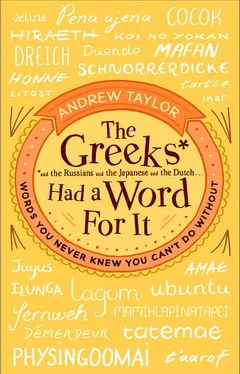Selfless generosity associated with manliness
Wilfred Thesiger, the great Arabian traveller of the twentieth century, was constantly astounded by the generosity of the tribesmen who were his hosts and guides on his journeys across the Arabian Desert. Theirs, he said many years after his travels were over, was the only society in which he had found true nobility.
But one incident above all gave him an insight into the traditional values by which the Arabs set such store. He and his companions were joined at their camp one night by a skinny old man in a tattered and grubby loincloth, who sat down to eat with them. Thesiger was astonished at the warmth of the welcome extended to the old man by the tribesmen.
He was, one of his guides explained, a man who was known far and wide for his generosity. Thesiger was not surprised by much about the Arabs, but he looked at the old man quizzically – the bones visible beneath the skin on his half-starved body, the broken sheath of his old dagger, the clear signs of grinding poverty – and he wondered what on earth the man could have to be generous with.
His companion shook his head. This, he explained, had once been the richest man of his tribe, but now his goats and his camels were gone. He had nothing. What had happened, asked Thesiger, still not understanding. Disease? Raiders? No, came the reply. He had given them all away, killing his last animals to feed strangers he had met in the desert. He was ruined by his own generosity.
‘By God, he is generous,’ the tribesman said with envy in his voice, and Thesiger finally understood.
The quality the old man possessed was muruwah . It is usually translated as ‘manliness’ – a term with all sorts of cultural connotations. For us, manliness might imply a collection of adjectives such as virile, strong, vigorous and hardy, but for the Arabs, scraping a meagre living in harsh and ever-threatening conditions, it carried those meanings and far more besides. It celebrated the virtues of the desert – courage, patience and endurance – and an acceptance that the individual would sacrifice his own interests for those of the community as a whole. There was an unquestioning loyalty to the sheikh and the elders of the tribe: to ensure survival, muruwah ( moo-ROO-ah , where the first is as in book, the second as in cool) had to be essentially a communal rather than an individual virtue.
It could be brutal – within the tribe, it led to an implacable adherence to traditional eye-for-an-eye justice. If a member of the tribe killed a man’s camel, then his own camel would be forfeit; in a society without locks, the few possessions the tribesmen owned had to be protected with an iron law. And it went further: if someone killed a man’s son, then his own child would be put to death as well. Towards those outside the tribe, it would mean at the very best a guarded hostility: muruwah meant that the tribesman would be ready to avenge any insult or aggression from another tribe with immediate armed retaliation.
But it embraced, too, a wholehearted generosity – a quality that was needed where there was never enough of anything. Providing food and shelter for the stranger was a matter of honour for the tribe and the individual alike; there was an instinctive egalitarianism that meant that the old, the young and the sick would be protected for as long as they could be without endangering the survival of the tribe as a whole.
An acceptance that the individual would sacrifice his own interests for those of the community as a whole.
For centuries, muruwah was the only way to maintain some sort of social order among the chaos of warring tribes. It was a chivalric code of honour that dated back well before the time of Mohammed and the dawn of Islam, and, as Thesiger found, it lasted well into the twentieth century.
Taken away from its birthplace, perhaps the complexity of qualities that muruwah entailed is less easy to understand – in the Arabian desert, shortage of food meant that you starved, while for most people in today’s developed world it probably means that you’ve forgotten to go to the supermarket.
But not for everyone. Even in today’s wealthy countries within Europe and in the US there are people without enough to eat, and across the wider world the problem of hunger and famine is always with us. If we had a word for manliness that included an idea of generosity and social responsibility it might just encourage us to act accordingly.
The love of honour
We all like to feel special – even unique. Jews are the Chosen People; Britain (or maybe England, or possibly the United Kingdom – the details are a little vague) is the Mother of the Free, whom God made mighty and whose bounds shall be set ‘wider still and wider’; the United States of America is the Land of Opportunity. And philotimo is the unique birthright of the Greeks.
Philotimo ( fill-oh-TEEM-oh ) means, literally, ‘the love of honour’ – to which rather grandiose phrase William Shakespeare’s Falstaff might unheroically reply, ‘What is honour? A word. What is in that word honour? What is that honour? Air.’ [22] William Shakespeare, Henry IV Part 1 , Act V, Scene i.
Those lines might not go down too well in Greece, as philotimo is a quality that many Greeks might say lies at the heart of who they are.
Thales of Miletus, one of the Seven Sages of Ancient Greece, observed in the early sixth century BC that philotimo came naturally to the Greeks. It was, he said, like breathing. ‘A Greek is not a Greek without it. He might as well not be alive.’ It is a quality that the Greeks frequently claim even today – a way of identifying their modern way of life with the glories of Classical Greece. And it is a mistake to be too cynical about it – philotimo is the quality that is often ascribed to the Greek partisans of the Second World War who risked the firing squad to help Allied servicemen and to join the resistance against the Nazi occupation. For them, it was much more than a fine word. The reply to Falstaff might be that honour, in their case, involved personal pride, honesty, courage and a passionate sense of freedom coupled with a deeply felt patriotism.
Philotimo is a quality that many Greeks might say lies at the heart of who they are.
But these qualities, central to philotimo , don’t tell the whole story. Over the centuries, it has come to represent a number of virtues that are seen as typically Greek – not just generosity but also appreciation of the generosity of others; not just love for your family but delight in their love for you; not just freedom but a sense of the limits placed on your freedom by your own instinct for what is right. In particular, it involves an understanding of the right way to behave in your relationships with others, whether within your own family or in wider society. Philotimo brings together the private individual and the public man.
The trouble is that these virtues, which describe the qualities that make an ideal man or woman, are universal – there can be few nations in the world that have not, at some time or other, claimed them as their own. In his first letter to the Thessalonians, the people of Thessalonica, St Paul urged them to live their lives with philotimo – a message that was passed on through the Bible to all the people of Christendom. The Greeks may not have a monopoly on the virtues, but they do have the only word to describe them. We can’t all be Greeks, but we can all achieve philotimo .
Читать дальше












